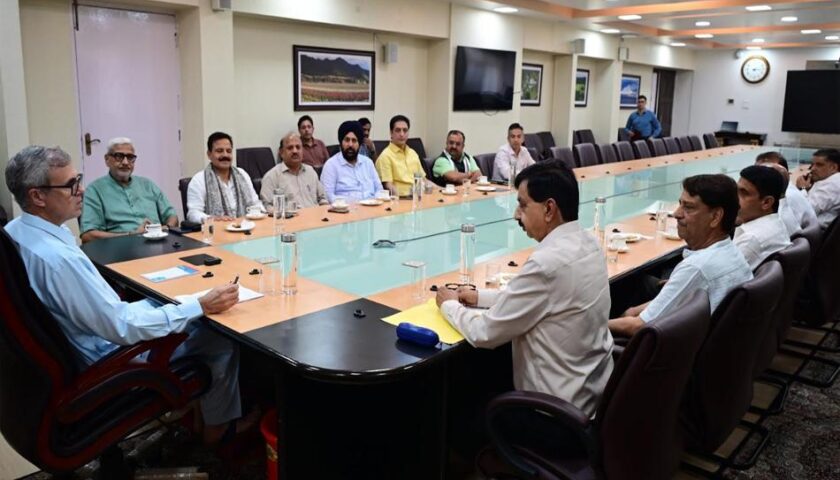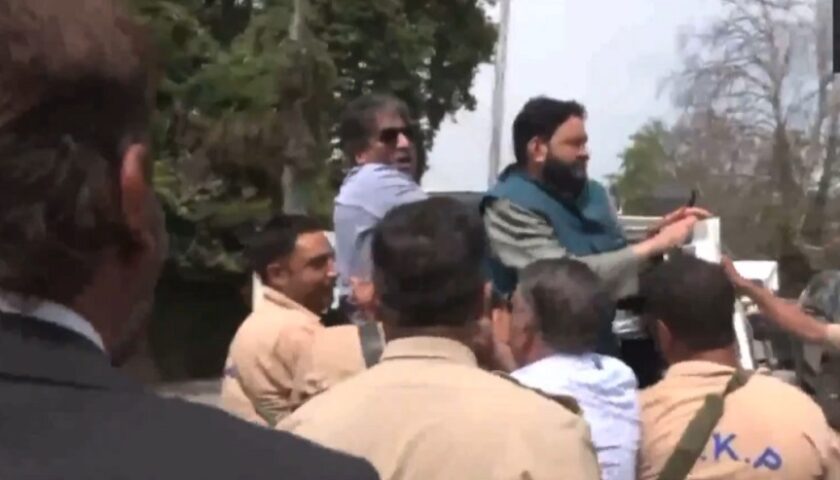“We are not returning to classical CASO in Kashmir, because we know they cause hardship to the local people. These are area search operations. It is not even a cordon,” General Rawat said.
 Underlining the operating philosophy of the Army which believes that all Kashmiris are not involved in militancy, Army chief General Bipin Rawat has said “our job is to separate the terrorists from the Kashmiri people and target the terrorists”. Disabusing the notion that the Army is against all Kashmiris or treats all Kashmiris as militants, General Rawat told : “We understand that all Kashmiris are not involved in the so-called militancy. There are few, select in number, who indulge in terror and violence. Our job is to separate the terrorists from the Kashmiri people and target the terrorists.”
Underlining the operating philosophy of the Army which believes that all Kashmiris are not involved in militancy, Army chief General Bipin Rawat has said “our job is to separate the terrorists from the Kashmiri people and target the terrorists”. Disabusing the notion that the Army is against all Kashmiris or treats all Kashmiris as militants, General Rawat told : “We understand that all Kashmiris are not involved in the so-called militancy. There are few, select in number, who indulge in terror and violence. Our job is to separate the terrorists from the Kashmiri people and target the terrorists.”
He also rejected claims that the Army has returned to Cordon and Search Operations (CASO) in the Valley as part of its counter-insurgency strategy in Jammu and Kashmir — there were reports to this effect after the conduct of a CASO in 15 villages in Shopian district last Thursday, which involved nearly 4,000 soldiers of the Rashtriya Rifles.
“We are not returning to classical CASO in Kashmir, because we know they cause hardship to the local people. These are area search operations. It is not even a cordon,” General Rawat said. The Army had discontinued CASO nearly 15 years ago because of diminishing results from these operations. Moreover, such operations alienated the local population due to the difficulties they faced.
Sources said that unlike a classical CASO, where the population of a village would be rounded up and brought to the village centre at the break of dawn, random search operations, directed at certain houses in villages of south Kashmir, will be conducted. The aim of these area search operations is to mount pressure, move the militants out of villages and into the forests. As intelligence sources have dried up and public protests have made operations in villages difficult, there are greater chances of success from counter-terror operations in forested areas.
The tempo of area search operations will be built, right up to the period leading to the Amarnath Yatra, sources said. The Amarnath Yatra, from June 29 to August 7, will pass through the districts of south Kashmir which have been engulfed by public protests these past few months. General Rawat also called upon all Kashmiris to condemn the killing of the young and unarmed Kashmiri Army officer, Lieutenant Ummer Fayaz, who was kidnapped and killed by militants in Shopian district on Wednesday.
“The young officer was a role model for all young Kashmiris. The way things are, this action has taken Kashmiris back while Lieutenant Ummer was taking it forward. He was encouraging other young people to join a force which the whole country is proud of,” he said. The Army chief said “these people are discouraging Kashmiris from availing job opportunities while thousands of people line up for police recruitment. How can they explain this dichotomy? This act (of Lieutenant Ummer’s murder) should be condemned by all Kashmiris.”
According to Army estimates, there are around 100 active militants in south Kashmir, including around 80 locals who have joined militancy in the last two years. The prevailing security situation in the region led to postponement, and eventual cancellation, of the Lok Sabha bypoll in Anantnag, represented earlier by current Chief Minister Mehbooba Mufti.






